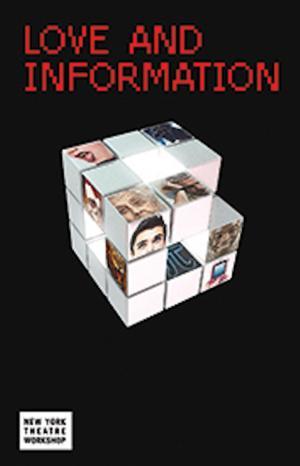 The two best cultural events of this past winter/spring were two plays I saw by Caryl Churchill. The first was at the College of Saint Benedict, A Number, performed by two theater professors. I expected it to be somewhat difficult to understand, in a Godot kind of way, from the description on the back of the short program distributed. However, it was completely straightforward and engaging. The play is about cloning, a man visiting with three sons, the “original” and two “copies” he had made in hopes of having a better relationship than he had with the original. It’s fairly dystopic, and raises various questions about identity, relationship, etc.
The two best cultural events of this past winter/spring were two plays I saw by Caryl Churchill. The first was at the College of Saint Benedict, A Number, performed by two theater professors. I expected it to be somewhat difficult to understand, in a Godot kind of way, from the description on the back of the short program distributed. However, it was completely straightforward and engaging. The play is about cloning, a man visiting with three sons, the “original” and two “copies” he had made in hopes of having a better relationship than he had with the original. It’s fairly dystopic, and raises various questions about identity, relationship, etc.
A friend then alerted me to a U.S. premier of Churchill’s latest play, Love and Information, in New York City while I would be there. We got tickets and went with Steve’s daughters and everyone loved the play. It was very well-acted, directed and staged, but mostly it was just incredibly well scripted. I started to have an experience about halfway through the play that I usually only have reading poetry– I wanted desperately to write! All sorts of little fragments of speech were going through my head. The play was totally inspiring as a creative experience.
This play is really a series of 57 short scenes, exploring themes of love, identity, the nature of information, truth, but most of all communication– what we say and what we understand and how we understand it. The play is organized into 7 sections of 7 scenes and a “Random” set that can be interspersed anywhere.
For the first time in my life of theater-going, I felt compelled to buy the script. I just had to see the words on the page, the stage direction, how she told the actors to embody these myriad characters and situations, what she told the directors, etc. Aside from a brief note about the ordering of the scenes, there is no stage direction to speak of. Most of the scenes take place between two people, but if not, there is a brief and sometimes vague instruction, as before “Wedding Video”: “Several people.” That’s it– and then what is spoken. No identifying character names or descriptions, not even genders. The woman telling a child that she is actually the child’s mother and who is thought to be the mother is the grandmother could be speaking to a male or female child of any age, but presumably at least nine or ten.
The point is, the intensely distilled dialogue is completely clear in its content and import. Never did I feel unsure about what was going on or who the characters were while watching the play. And though I now have the performance informing me, I think the experience is probably the same reading the play. I would just love to teach this play, especially with something like The Glass Menagerie or Death of a Salesman which has so much written structure (stage direction, author commentary) into the script, like Tennessee Williams and Arthur Miller were conscious of writing literature.
It might be my experience writing 100-word stories that made me so appreciative of the compression and clarity of these scenes. And it is not just those two things but also the depth of them. If it weren’t for intense copyright infringement warnings, I would give you one section in its entirety. It is 98 words long, titled “Schizophrenia,” but you don’t need to know the title to know exactly what is going on. In it, one person questions another, beginning with the question: “How do you know I’m evil?” The relationship between these two is not given, but it is clear the two are close and their relationship is specific. And there is big trouble brewing here. The “solution,” medication, is rejected. The piece is what poetry, at its best, does, and what flash fiction, at its best, does. There is form and there is a depth of emotion and experience that could keep one occupied with this little exchange for a long, long time.
There are scenes in the script that are shorter. And there are scenes that are longer, including one, maybe my favorite, in which a woman gives an account of her scientific research on what is possibly a first date. It’s an answer, we can assume, to the simple question: “What do you do?” Her answer, punctuated by brief interruptions by the date, is compelling, fascinating, funny, and completely open and engaging. It is also so, so revealing about the way we give ourselves to others, full of hope and joy, wanting to be understood and to be loved. And of course, the way we receive each other, with fascination and an equal longing to understand and to love.
I cannot recommend Love and Information, on stage and in writing, highly enough. If you ever get a chance to see any of Churchill’s plays, go! And if you only have the chance to read the script, well, you will not be disappointed.


